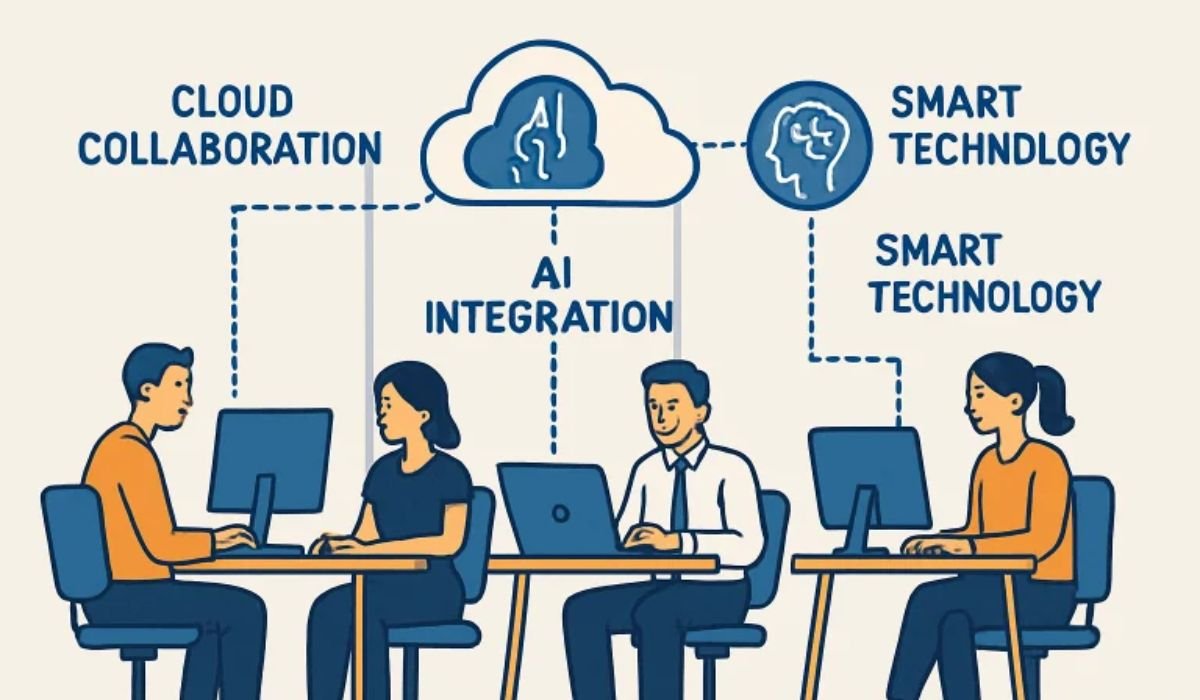In a rapidly evolving professional world, the ability to lead with clarity, adaptability, and purpose has never been more valuable. As organizations face growing complexity, the need for capable, forward-thinking leaders is driving interest in specialized education that blends strategic insight with human-centered leadership. An online master’s degree in organizational leadership addresses this demand by equipping professionals to manage change, inspire teams, and foster innovation across various industries and diverse work environments. This guide examines how such a degree provides career versatility, the benefits of online learning, and how graduates can apply their knowledge in real-world contexts, making it an ideal path for those seeking to enhance their leadership impact.
Career Versatility with an Organizational Leadership Degree
In today’s complex workplaces, organizational leadership has become essential for fostering healthy, adaptive, and high-performing teams. Leaders who demonstrate vision, inclusivity, and adaptability have a profound impact on every layer of an organization’s culture and strategy. Pursuing an online masters degree in organizational leadership at Arkansas State University enables professionals to acquire a unique blend of people-focused skills and analytical expertise that sets them apart in any field. These programs equip students to take on responsibilities that extend well beyond day-to-day management, fueling careers across various industries, including healthcare, manufacturing, technology, education, and nonprofit administration.
The growing demand for leaders with organizational vision is evident in job postings worldwide. Graduates can pursue roles as operations managers, executive directors, learning and development specialists, and organizational consultants. This degree signifies the ability to unite diverse teams, facilitate effective communication, and steer organizations toward shared goals, all while adapting to market changes and technological advancements. The ability to translate vision into actionable outcomes has never been more valuable, making organizational leadership degrees a dynamic option for those seeking advancement and impact.
The Value of Flexibility in Online Graduate Education
Life rarely pauses for education, especially for working adults balancing multiple commitments. Online learning revolutionizes access by allowing professionals to engage with rigorous graduate-level material while maintaining their careers and personal responsibilities. The asynchrony of most online master’s programs allows students to study after work, on weekends, or at their convenience, as life permits. This flexibility enables aspiring leaders to tailor their learning experiences and create schedules that align with their circumstances.
In contrast to traditional classroom-based programs that may require relocation or lengthy commutes, online options demolish geographic and logistical barriers. Access to online coursework, lectures, and resources supports learners in urban, rural, and even international locations. Many students find that the online format fosters greater self-management and personal discipline—qualities revered in organizational leadership. Additionally, digital learning introduces them to virtual communication, remote teamwork, and technology platforms that are crucial in contemporary organizations.
Building Core Leadership Competencies
The curriculum within an organizational leadership program acts as a training ground for the essential skills that employers crave. Strategic thinking is at the heart of these degrees, teaching students to anticipate challenges, plan for the future, and align departmental goals with organizational vision. Ethical decision-making takes center stage as leaders are called to act with integrity and transparency, shaping organizational standards. Communication is examined from all angles, with an emphasis on clear messaging and active listening—key drivers of both day-to-day efficiency and crisis management.
Conflict resolution and negotiation are also fundamental, given that leaders regularly navigate disagreements and facilitate consensus. Organizational leadership education goes beyond theory, often incorporating scenario-based simulations or practicum experiences. For example, students might lead a virtual team project, craft a strategic plan, or analyze a case study on corporate restructuring. These activities prepare them for challenges like mediating employee disputes, managing organizational change, and motivating teams under pressure.
Networking and Collaboration in a Virtual Setting
Contrary to the belief that online education is isolating, modern virtual classrooms can foster strong bonds and lasting professional relationships. Students routinely engage with peers who bring a diverse array of experiences from industries as varied as healthcare, the public sector, finance, and entrepreneurship. This mix exposes learners to various working styles, organizational cultures, and leadership philosophies, helping them broaden their perspective and enhance their cross-cultural communication skills.
Through group assignments, real-time discussions, and peer feedback, students learn to collaborate digitally—a critical skill as organizations become more global and distributed. The relationships built throughout these programs often extend beyond graduation, evolving into mentorship, collaboration on professional projects, or job referrals. Such diverse interactions lay the groundwork for a network that can be leveraged throughout one’s career, making the online experience as rich, if not richer, than traditional on-campus learning.
Current Trends Shaping Organizational Leadership
The world of organizational leadership is rapidly evolving, shaped by global changes, technological advancements, and shifting expectations of the workforce. Leaders today must be adept at managing remote or hybrid teams, leveraging new technology platforms, and adapting to fast-changing markets. Emphasis is placed on emotional intelligence, the capacity to understand and manage one’s own emotions as well as those of a team. This is especially important in times of uncertainty or transformation, where reassurance and clarity from the top can steady an entire organization.
Research highlighting core leadership competencies emphasizes the need for cultural agility and resilience. Today’s effective leaders encourage innovation, make data-driven decisions, and empower employees to take initiative. As a result, organizational leadership programs continually update their curricula to reflect these competencies, ensuring that graduates remain ahead of the curve and prepared for leadership opportunities in any environment.
Assessing Return on Investment: Long-Term Career Benefits
When weighing the decision to pursue graduate education, prospective students carefully consider both the tangible and intangible benefits. Reliable data from the U.S. Bureau of Labor Statistics indicate that professionals with master’s degrees experience higher earning power and greater employment stability compared to their counterparts with bachelor’s degrees. Fields such as project management, operations direction, and consulting regularly list advanced degrees as preferred or required for upper-level positions, which translates to a clear pathway for career mobility.
Beyond the financial gains, alumni report improvements in confidence, ability to motivate others, and problem-solving aptitude. Many express newfound job satisfaction and fulfillment from successfully transitioning into impactful leadership positions. A graduate credential in organizational leadership also signals to employers a dedication to lifelong learning and professional growth—qualities vital for sustainable success amid evolving industry demands.
Tips for Choosing the Right Online Organizational Leadership Program
Choosing the right online program is crucial—look for regional or programmatic accreditation, robust student support services, and a curriculum that strikes a balance between theory and hands-on experience. Explore faculty qualifications and whether instructors bring real-world leadership experience to their teaching. Investigate your potential workload, capstone or practicum opportunities, and available elective tracks that can tailor your experience to your career goals.
Finally, set yourself up for success by developing a support network, maintaining a structured study schedule, and communicating proactively with instructors. Balancing graduate study with work and life is a challenge, but with the right tools and mindset, it’s an achievable and rewarding investment in your long-term career prosperity and effectiveness as a leader. Organizational leadership is a field for those committed to positive change, and a well-chosen online master’s program offers the toolkit, flexibility, and community to help professionals realize their potential in this dynamic space.
YOU MAY ALSO LIKE: Pedro Paulo Executive Coaching: The Leadership Alchemy Turning Pressure into Progress











